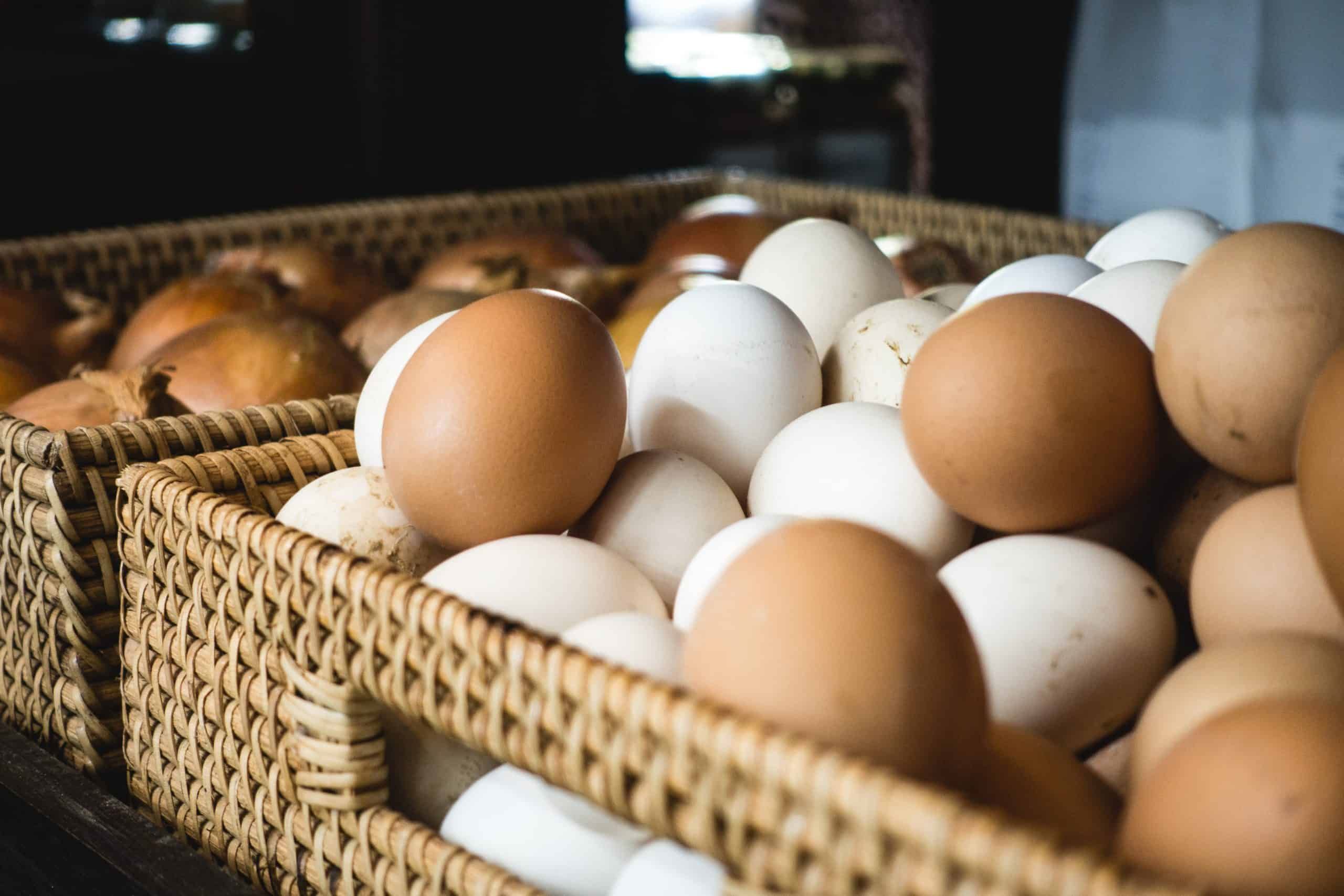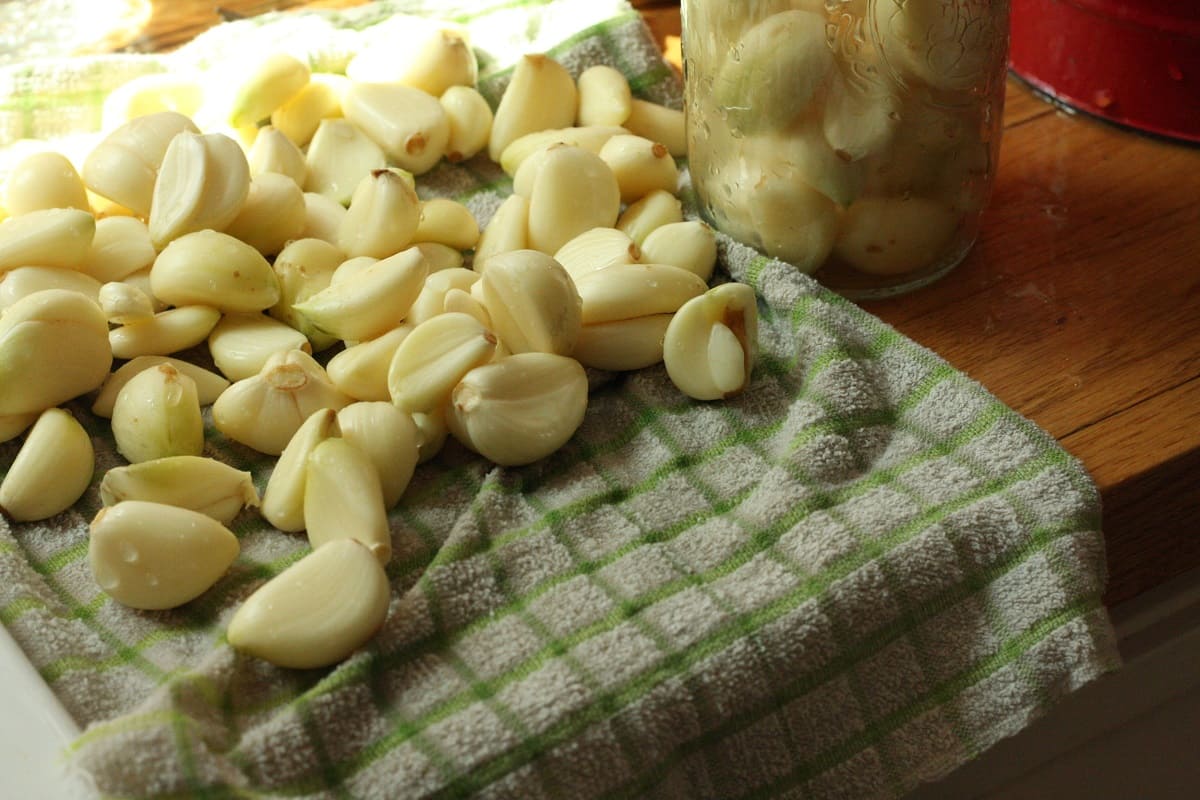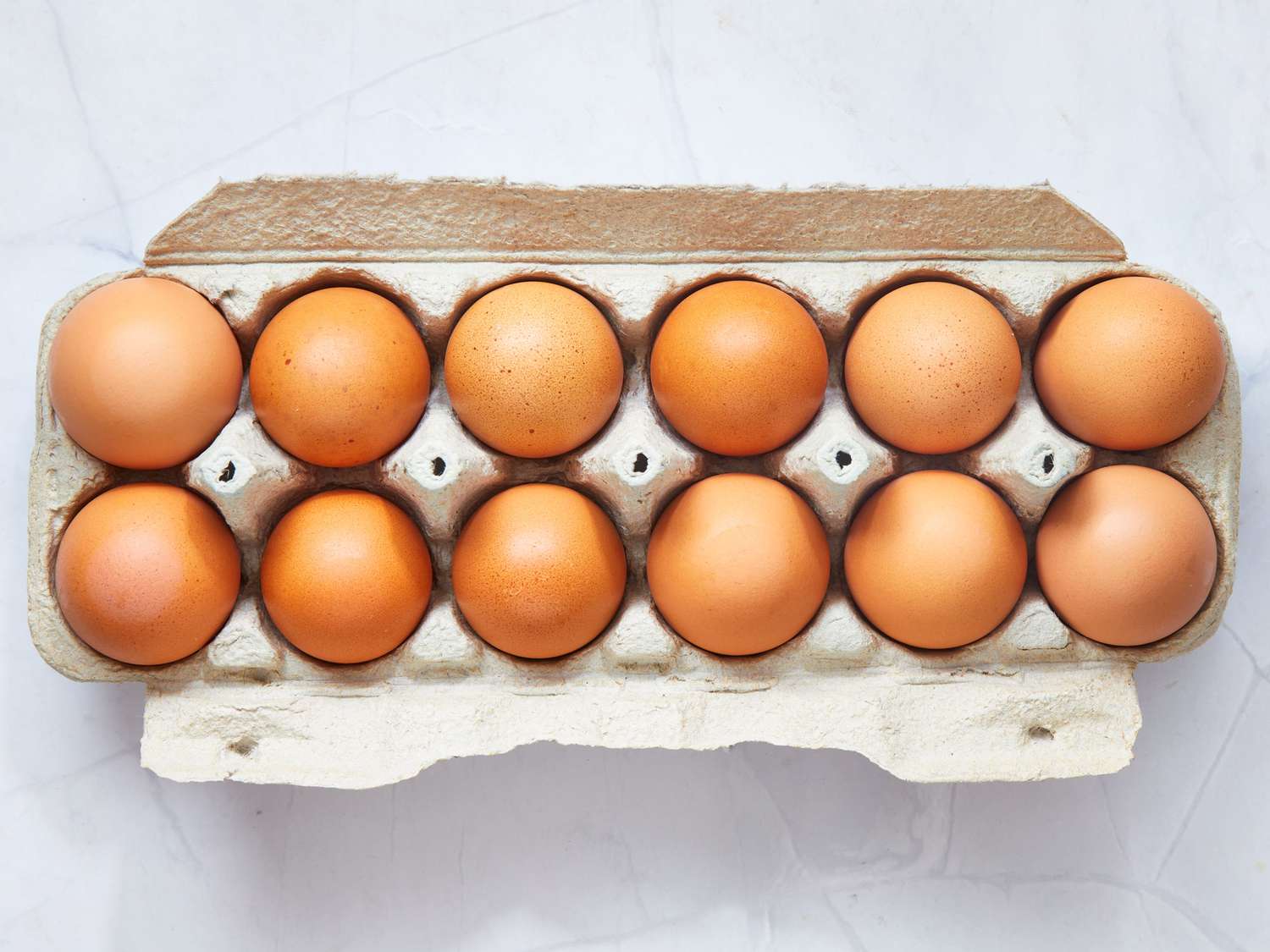

Articles
How To Store Eggs For A Long Time
Modified: October 19, 2024
Learn how to store eggs for a long time with our informative articles. Find helpful tips and techniques to keep your eggs fresh and delicious.
(Many of the links in this article redirect to a specific reviewed product. Your purchase of these products through affiliate links helps to generate commission for Storables.com, at no extra cost. Learn more)
Introduction
Welcome to the ultimate guide on how to store eggs for a long time. Eggs are a staple ingredient in many dishes and having a constant supply of fresh eggs is essential for any kitchen. However, eggs have a limited shelf life, and improper storage can lead to spoilage and waste. That’s why it is important to understand the factors that affect egg storage and learn the best practices for preserving their freshness.
There are several factors that can affect the longevity of eggs, including temperature, humidity, and handling methods. Proper storage is crucial to maintain their quality and extend their shelf life. In this article, we will explore different methods for storing eggs, including refrigeration, freezing, and the use of preservatives. We will also discuss how to clean eggs before storage, how to identify signs of spoilage, and offer tips on using stored eggs in your favorite recipes.
If you are a homesteader with a backyard flock or simply someone who buys eggs in bulk, knowing how to store eggs properly can save you money and ensure that you always have a fresh supply on hand. So, let’s dive in and discover the best strategies for storing eggs for an extended period!
Key Takeaways:
- Proper egg storage is essential for maintaining freshness and safety. Whether refrigerating, freezing, or using preservatives, following best practices can extend shelf life and minimize spoilage risk.
- When using stored eggs in recipes, adjustments may be needed for baking and cooking methods. With creativity and adaptation, delicious meals and baked goods can still be enjoyed using stored eggs.
Read more: How To Store Okra For Long Time
Factors that Affect Egg Storage
When it comes to storing eggs, there are several factors that can greatly impact their shelf life and overall quality. By understanding these factors, you can ensure that your eggs remain fresh and safe to consume for as long as possible. Let’s take a closer look at the key factors that affect egg storage:
- Temperature: Eggs are sensitive to temperature changes, and maintaining a consistent temperature is crucial for their storage. The ideal temperature for egg storage is between 32°F (0°C) and 40°F (4°C). Storing eggs at higher temperatures can accelerate the aging process and increase the risk of spoilage.
- Humidity: The humidity level in the storage environment can also affect egg quality. Eggs have a natural protective coating called the cuticle, which helps to prevent moisture loss and the penetration of harmful bacteria. High humidity can cause the cuticle to degrade, making the eggs more susceptible to contamination and spoilage. Therefore, it is important to store eggs in a relatively low humidity environment.
- Position: The position in which eggs are stored can impact their freshness. Eggs have an air cell at the large end, and storing them with the air cell facing upwards can help to maintain freshness by preventing the yolk from moving away from the center. This is especially important for long-term storage.
- Handling: Proper handling is crucial when it comes to egg storage. Rough handling can cause small cracks in the eggshell, providing an entry point for bacteria. It is important to handle eggs gently and avoid stacking or piling them on top of one another.
- Age: The age of the eggs can also impact their storage life. Fresher eggs have a longer shelf life compared to older ones. It is recommended to consume eggs within 3-4 weeks of the packing date for optimal freshness.
By considering these factors and implementing the appropriate storage methods, you can prolong the shelf life of your eggs and ensure that they remain safe and enjoyable to eat. In the next section, we will explore the best practices for egg storage, including various refrigeration methods, freezing techniques, and the use of preservatives.
Best Practices for Egg Storage
To ensure the freshness and quality of your eggs, it is important to follow best practices for egg storage. By implementing these practices, you can extend the shelf life of your eggs and minimize the risk of spoilage. Here are some key guidelines to follow:
- Choose fresh eggs: When purchasing eggs, select the freshest ones available. Check for the packing date on the carton and choose eggs that are as fresh as possible. Fresh eggs have a better texture, taste, and a longer shelf life.
- Inspect eggs before storage: Before storing eggs, carefully inspect them for any cracks, dirt, or signs of contamination. Discard any eggs with cracks or damage, as they are more vulnerable to bacterial contamination.
- Keep eggs refrigerated: Eggs should be stored in the refrigerator to maintain their freshness and prevent bacterial growth. Place the eggs in the main refrigerator compartment, rather than the door as it experiences more temperature fluctuations.
- Use a dedicated container: Use a dedicated container or egg carton to store your eggs. This helps to protect them from other odors and contamination in the refrigerator. Avoid washing eggs before storage, as the water can remove the protective cuticle.
- Store eggs in the shell: It is generally recommended to store eggs in their shells. The shell provides a natural protective barrier that helps to maintain the egg’s freshness and flavor. However, there are alternative methods for long-term egg storage which we will discuss later.
- Avoid extreme temperature changes: Rapid temperature changes can cause condensation to form on the eggshell, which can lead to bacterial growth. Avoid placing eggs directly from the refrigerator into a hot environment or vice versa.
- Keep eggs away from strong odors: Eggs have a porous shell that can absorb odors from other foods in the refrigerator. To avoid any flavor transfer, store eggs in a separate container and away from strong-smelling foods.
- Rotate eggs: To ensure even consumption, rotate your egg supply. Use older eggs first, and place the freshest eggs at the back of the container. This way, you’ll always have fresh eggs readily available.
By following these best practices, you can maximize the shelf life of your eggs and ensure that they stay fresh and safe to eat. In the next sections, we will explore different methods for refrigerating, freezing, and using preservatives to extend the storage life of your eggs.
Refrigeration Methods for Storing Eggs
Refrigeration is the most common method for storing eggs and maintaining their freshness. The controlled temperature helps to slow down the aging process and prevent bacterial growth. Here are some refrigeration methods for storing eggs:
- Store eggs in the original carton: The original egg carton is designed to protect the eggs and maintain their quality. Keep the eggs in the carton and place it on a shelf in the refrigerator, away from any strong-smelling foods. This method helps to prevent moisture loss and protects the eggs from absorbing odors.
- Use an egg storage container: If you prefer not to keep the eggs in their original carton, you can use an egg storage container. These containers are specifically designed to hold eggs and provide a protective barrier. Make sure to choose a container with proper air circulation to prevent condensation.
- Avoid storing eggs in the refrigerator door: The refrigerator door experiences temperature fluctuations each time it is opened. This can affect the quality of the eggs and increase the risk of spoilage. It is best to store eggs on a shelf in the refrigerator’s main compartment for more consistent temperatures.
- Store eggs with the air cell up: Eggs have an air cell at the large end, and storing them with the air cell facing upwards can help to maintain freshness. This position prevents the yolk from moving away from the center, reducing the risk of egg deterioration and maintaining the overall quality.
- Keep the refrigerator temperature consistent: It is important to maintain a consistent refrigerator temperature for optimal egg storage. Ideally, keep the temperature between 32°F (0°C) and 40°F (4°C). Avoid frequent temperature fluctuations, as this can affect the egg quality.
By using these refrigeration methods, you can store your eggs in the refrigerator for a longer period while preserving their freshness. However, it is worth noting that refrigeration only extends the shelf life of eggs, and there are other methods available for longer-term storage. In the next section, we will explore the process of freezing eggs for prolonged storage.
Freezing Eggs for Long-Term Storage
If you have an abundance of eggs or want to extend their storage life beyond the typical refrigerator timeframe, freezing is a great option. Freezing eggs can allow you to preserve them for several months, ensuring a constant supply even when fresh eggs are not readily available. Here’s how you can freeze eggs for long-term storage:
- Crack and beat eggs: Start by cracking the eggs into a bowl and beating them slightly. This will make it easier to work with and prevent the yolks and whites from separating during the freezing process.
- Choose the right container: Transfer the beaten eggs into a suitable container for freezing. You can use ice cube trays, muffin tins, or freezer-safe containers. Make sure to leave some room for expansion, as the eggs will expand when frozen.
- Label and date the containers: To keep track of the freezing time and ensure freshness, label each container with the date of freezing. This will help you prioritize the use of older eggs before newer ones.
- Cover or seal the containers: Cover the containers tightly with plastic wrap or aluminum foil, or seal them with a lid if using freezer-safe containers. This will prevent freezer burn and maintain the quality of the eggs.
- Place in the freezer: Carefully place the containers in the freezer, ensuring they are kept level. It is recommended to place them in a single layer initially to allow for quicker freezing. Once frozen, they can be stacked to save space.
- Thawing frozen eggs: When you’re ready to use the frozen eggs, transfer them to the refrigerator to thaw overnight. Alternatively, you can thaw them in a microwave on low power or in a bowl of cold water. Once thawed, the eggs can be used in a variety of recipes.
- Using frozen eggs: Frozen eggs can be used in a wide range of dishes, including baking, scrambles, omelets, and more. However, it’s important to note that frozen eggs may have a slightly different texture compared to fresh eggs. They are best used in cooked dishes rather than for dishes where the texture of the egg is more prominent.
By following these steps, you can successfully freeze eggs for long-term storage. Freezing allows you to stock up on eggs when they are abundant or on sale, providing convenience and flexibility in your meal planning. However, it’s worth noting that freezing may slightly alter the texture of the eggs, so consider this when deciding how to use them in recipes.
Now that we’ve covered refrigeration and freezing methods, let’s explore another option for extending the storage life of eggs – using preservatives.
Store eggs in their original carton in the coldest part of the fridge, not in the door. This helps maintain their quality and freshness for a longer period of time.
Read more: How To Store Ammo For Long Time
Using Preservatives to Extend Egg Shelf Life
Preservatives can be used to extend the shelf life of eggs, allowing you to store them for a longer duration without the need for refrigeration or freezing. These preservatives can help maintain the freshness and quality of eggs, making them a viable option for certain situations. Here are some common preservatives used to extend the shelf life of eggs:
- Mineral oil: Coating eggs with mineral oil forms a protective barrier between the shell and the environment, preventing moisture loss and reducing the risk of bacterial contamination. To use mineral oil as a preservative, gently wipe the eggs with a cloth soaked in mineral oil, taking care to cover the entire surface of the shell. Store the eggs at room temperature in a cool and dry place.
- Water glass (sodium silicate): Water glass is a solution of sodium silicate that acts as a preservative by sealing the pores of the eggshell, preventing air and bacteria from entering. To use water glass as a preservative, dilute it according to the manufacturer’s instructions and submerge the eggs in the solution, making sure they are fully covered. Store the eggs in a cool and dark place away from direct sunlight.
- Commercial egg preservatives: There are also commercially available egg preservatives that are specifically formulated to extend the shelf life of eggs. These preservatives typically come in powder or liquid form and can be used according to the manufacturer’s instructions. They often contain antimicrobial agents that inhibit the growth of bacteria and maintain egg freshness.
It’s important to note that while these preservatives can help extend egg shelf life, they do not make eggs indefinitely safe for consumption. Regularly check for signs of spoilage and discard any eggs that show signs of contamination or deterioration. Additionally, using preservatives may alter the flavor or texture of the eggs, so it’s best to use them in recipes where the effect of the preservative is less noticeable, such as in baked goods or cooked dishes.
Using preservatives to extend egg shelf life can be a convenient option, especially in situations where refrigeration or freezing may not be available. However, it’s still recommended to prioritize refrigeration or freezing methods for long-term egg storage, as they offer a more reliable and natural way to preserve egg freshness.
In the next section, we will discuss how to properly clean eggs before storage to ensure their safety and quality.
How to Properly Clean Eggs Before Storage
Properly cleaning eggs before storage is crucial to ensure their safety and maintain their quality. While eggs have a natural protective coating called the cuticle, which helps to prevent moisture loss and the entry of bacteria, there are times when eggs may need cleaning. Here are some guidelines on how to properly clean eggs before storage:
- Determine if washing is necessary: In most cases, fresh eggs do not require washing, as the cuticle acts as a natural protective barrier. However, if the eggs are visibly dirty, soiled, or have feces on them, washing may be necessary to remove potential contaminants.
- Use warm water: If you need to wash the eggs, use warm water around 40-50°C (104-122°F). Avoid using hot water, as it can cause the contents of the egg to expand and potentially push bacteria through the shell.
- Gently wash the eggs: With clean hands, gently rub the eggs under the warm running water. Use a soft cloth or sponge to remove any dirt or debris. Avoid scrubbing the eggs vigorously, as this can remove or damage the protective cuticle.
- Dry the eggs: After washing, allow the eggs to air dry completely. Avoid using towels or any other materials to dry the eggs, as this can transfer bacteria onto the eggs. Drying eggs at room temperature is generally sufficient.
- Do not wash eggs before long-term storage: If you plan to store eggs for an extended period, it is recommended not to wash them before storage. Washing can remove the protective cuticle and increase the risk of moisture loss and bacterial contamination. Instead, store unwashed eggs in a cool place with a consistent temperature.
It’s important to note that washing eggs should be done with caution and only when necessary. If eggs are properly handled and stored, washing can often be avoided altogether. Remember to regularly inspect the eggs for any signs of spoilage and discard any eggs that show signs of contamination, cracks, or an off odor.
Now that you know how to properly clean eggs before storage, let’s move on to the next section, where we will discuss the signs of spoiled eggs and when to discard them.
Signs of Spoiled Eggs and When to Discard Them
Knowing the signs of spoiled eggs is essential for ensuring food safety and avoiding the risk of consuming contaminated eggs. It’s important to inspect eggs before use and know when to discard them. Here are the key signs of spoiled eggs:
- Strange odor: Fresh eggs have a subtle, neutral smell. If you detect an off or foul odor when you crack an egg open, it is an indication that the egg has spoiled and should be discarded.
- Unusual appearance: Visually inspecting the egg is crucial. If the eggshell is cracked, slimy, moldy, or discolored, it is a strong indication that the egg has gone bad and should not be consumed.
- Floating in water: A classic method for checking egg freshness is to place the egg in a bowl of water. Fresh eggs will typically sink to the bottom and lie flat on their sides. If an egg floats to the top or stands upright, it means that it has likely spoiled and needs to be discarded.
- Abnormal texture: When cracking open a spoiled egg, you may notice that the egg white is watery or unusually thick and clumpy. The yolk may also appear discolored, runny, or have an abnormal texture.
- Unpleasant taste: If you happen to consume a spoiled egg, you’ll likely notice an unpleasant taste. Trust your taste buds, and if the egg tastes off or has a rancid flavor, spit it out and do not consume any more of it.
It’s important to be vigilant and discard eggs that show any of these signs of spoilage. Consuming spoiled eggs can lead to foodborne illness, with symptoms such as nausea, vomiting, diarrhea, and stomach cramps. When in doubt, it’s always safer to err on the side of caution and discard any eggs that you suspect may be spoiled.
By properly inspecting and identifying the signs of spoiled eggs, you can ensure that your meals are safe and enjoyable. In the next section, we will provide some helpful tips for using stored eggs in your favorite recipes.
Tips for Using Stored Eggs in Recipes
Using stored eggs in recipes can be a great way to make the most of your egg supply and reduce food waste. While stored eggs may not have the same freshness as fresh eggs, they can still be used in a variety of recipes with a few adjustments. Here are some tips for using stored eggs in your favorite dishes:
- Baking: Stored eggs can still be used for baking, although the texture and rise may be slightly affected. To compensate for this, you can add an extra egg or increase the leavening agents such as baking powder or baking soda. This will help to provide the necessary lift and structure in your baked goods.
- Whipping egg whites: If you need to whip egg whites for meringues or other recipes, it may be more challenging with older eggs. To improve the stability, ensure that the egg whites are at room temperature and add a pinch of cream of tartar or a few drops of lemon juice. This can help stabilize the egg whites and achieve a good volume.
- Scrambles and omelets: In recipes where eggs are cooked, such as scrambles and omelets, stored eggs can be used without any significant impact on flavor or texture. These methods of cooking often mask any differences in freshness between stored and fresh eggs.
- Hard-boiled eggs: Stored eggs can be used for hard-boiling. However, it’s worth noting that older eggs tend to be easier to peel after boiling compared to fresh eggs. If you prefer easily peelable hard-boiled eggs, it’s advisable to use slightly older eggs from your storage.
- Cooking with yolks: If you’re using stored eggs for recipes that specifically call for egg yolks, such as custards or sauces, the freshness of the egg yolks is more crucial than the whites. In these cases, it’s best to use the freshest eggs available for optimal flavor and texture.
- Egg substitutions: If you run out of fresh eggs and only have stored eggs on hand, you can use substitutes like mashed bananas, applesauce, or yogurt in some recipes. However, keep in mind that these substitutions may alter the taste and texture of the final dish.
While stored eggs may not be ideal for dishes where the egg’s flavor or appearance is prominent, they can still be used with some adjustments in a variety of recipes. Being creative and experimenting with different cooking methods can help you make the most of your stored eggs and enjoy delicious meals.
Remember to always practice proper food safety and consult your recipe for specific instructions on using stored eggs. Now that you’re equipped with tips for using stored eggs, let’s conclude our guide on storing eggs for a long time.
Read more: How To Store Rice For A Long Time
Conclusion
Proper egg storage is crucial to maintain their freshness, quality, and safety. By understanding the factors that affect egg storage and following best practices, you can extend the shelf life of eggs and minimize the risk of spoilage. Whether you choose to refrigerate, freeze, or use preservatives, there are various methods available to store eggs for a longer time.
Refrigeration is the most common method and should be used for short to medium-term storage. Make sure to keep eggs in their original carton, store them with the air cell up, and maintain a consistent refrigerator temperature. Freezing eggs allows for long-term storage and can be useful when you have an excess supply. Just remember to crack and beat the eggs, choose suitable containers, and properly label them for easy usage. If refrigeration or freezing is not an option, using preservatives like mineral oil or water glass can help maintain the quality of eggs at room temperature for a longer duration.
When handling eggs, it’s important to keep them clean, inspect for signs of spoilage, and discard any eggs that show signs of contamination or deterioration. Knowing the signs of spoiled eggs, such as unusual odor, appearance, or taste, is essential for ensuring food safety. When using stored eggs in recipes, be aware of potential adjustments needed for baking and cooking methods. With some creativity and adaptation, you can still enjoy delicious meals and baked goods using stored eggs.
In conclusion, proper egg storage and handling practices are essential to maximize their freshness and safety. By implementing the tips and techniques outlined in this guide, you can confidently store eggs for a longer time, reduce waste, and ensure a constant supply of fresh eggs for your culinary adventures.
Frequently Asked Questions about How To Store Eggs For A Long Time
Was this page helpful?
At Storables.com, we guarantee accurate and reliable information. Our content, validated by Expert Board Contributors, is crafted following stringent Editorial Policies. We're committed to providing you with well-researched, expert-backed insights for all your informational needs.














0 thoughts on “How To Store Eggs For A Long Time”